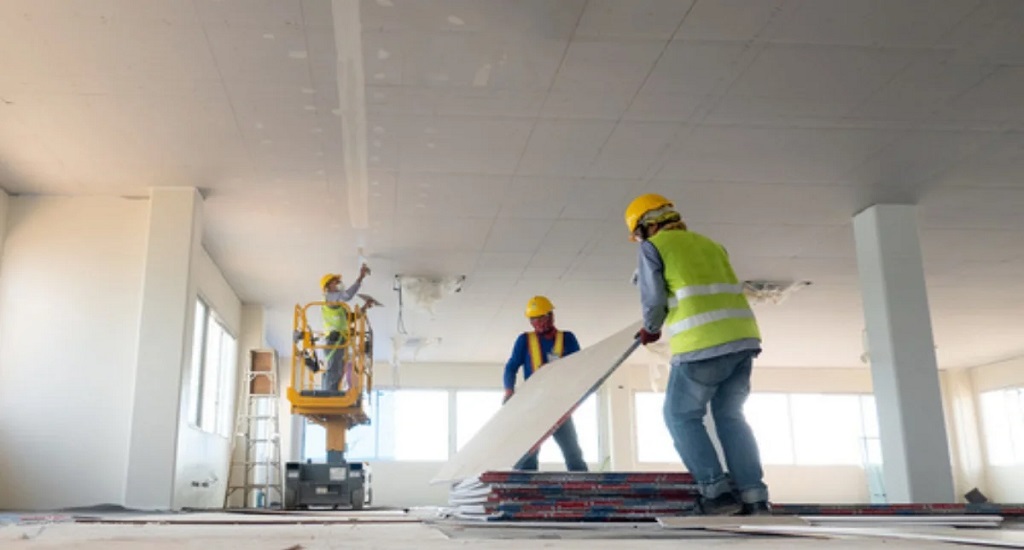The construction industry annually builds many homes, offices, hospitals, and schools. And this massive amount of structures need drywall to be installed. While homeowners can install drywall themselves, hiring an expert is often much better.
Here are a few reasons why
They Have the Right Tools
Drywall is a critical part of any construction project. It keeps out cold air, insulates against sound, and provides a smooth surface for painting and other tasks. When installed correctly, drywall is strong and long-lasting. However, improperly installed can lead to several issues, including leaks, mold, mildew, and other problems. A professional drywall contractor will have the right tools for the job. They will also have a system for inspecting the drywall and repairing any nicks or dents. They will also use a special tool to cut the drywall quickly and accurately.
They Have the Right Equipment
Drywall contractors are responsible for reviewing construction plans, ordering materials, and delivering drywall to the job site. They also oversee framing, mudding and preparing the walls to be painted. They are also responsible for completing a walkthrough with the drywall installers to ensure that all the wallboard is properly installed and that there are no issues like fire separation or stud alignment. Drywall is complicated and requires special tools like a drywall saw, t-squares, a sander and a board lift. Professionals know how to use these tools correctly and efficiently to finish the drywall with a smooth, polished look. Choosing a construction industry career is rewarding for the drywall contractor and the community. Families will grow in the homes they build, students will learn in the schools, and lives will be changed by the gyms, churches, and other businesses they construct.
They Have the Right Experience
Drywall construction is an industry that requires a lot of experience to be done properly. This is because drywall construction is important in homes, schools, hospitals and other structures that must be built or repaired yearly.
When you hire a professional, they know how to measure drywall sheets properly and correctly cut and place them. They also know how to properly frame the walls, apply mud and sand the seams for a smooth and seamless finish.
Incorrect drywall mounting can cause much damage in the long run, so it’s best to let the professionals handle it. They’ll guarantee their work, so you don’t have to worry about any problems that may arise down the road.
They Have the Right to License
Professional drywall contractors know how to install drywall correctly and ensure it stands the test of time. This is important because it will save the homeowner money in the long run by preventing the need for repairs or sheet replacements.
Drywall installers also work quickly and efficiently because they have the process down to a science. They can create a schedule and meet milestones in a contract to ensure the job is completed within an appropriate time frame.
Licensing boards typically require a contractor license to be able to perform drywall installation. This includes submitting financial specifications like a credit report and the ability to pay for materials. This will help the licensing board avoid worrying that a contractor may go out of business or run out of money on a construction project.
They Have the Right Insurance
Drywall installation requires more than just a hammer and nails. It involves a large tarp, utility knife, drill, screwdriver, and other tools of the trade. If these items are stolen or damaged, a tool and equipment policy may help cover the costs of replacing them. Drywall professionals also have business auto insurance, which helps pay for vehicle repairs and rental expenses if they are stranded while working on a job site. They carry general liability insurance that may help with property damage, bodily injury, and medical payments. Finally, drywall contractors often buy surety bonds to demonstrate their commitment to honoring contractual obligations. These bonds are typically less expensive than traditional insurance but offer similar protections. They are a great way to make your drywall business appear professional to potential customers.





